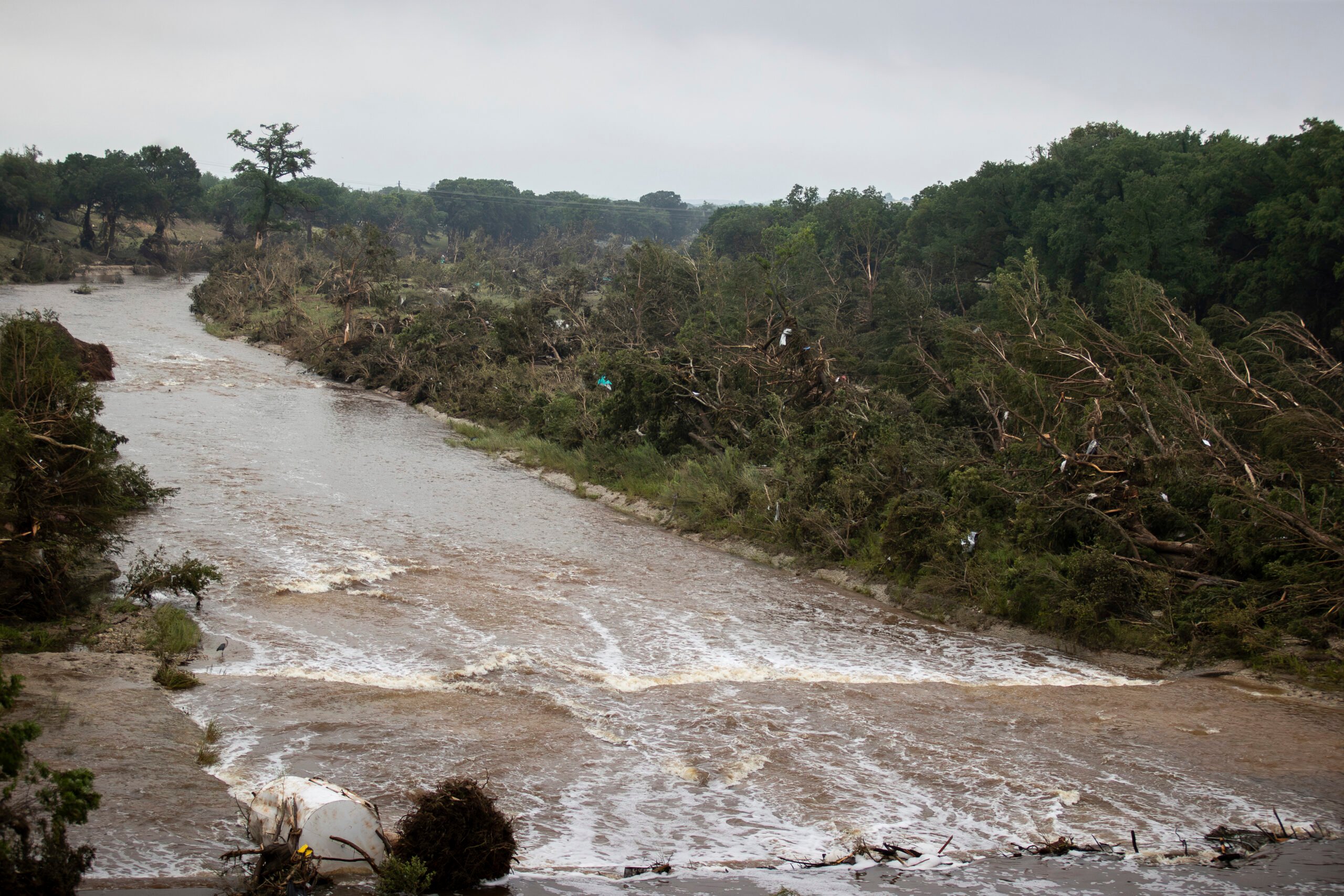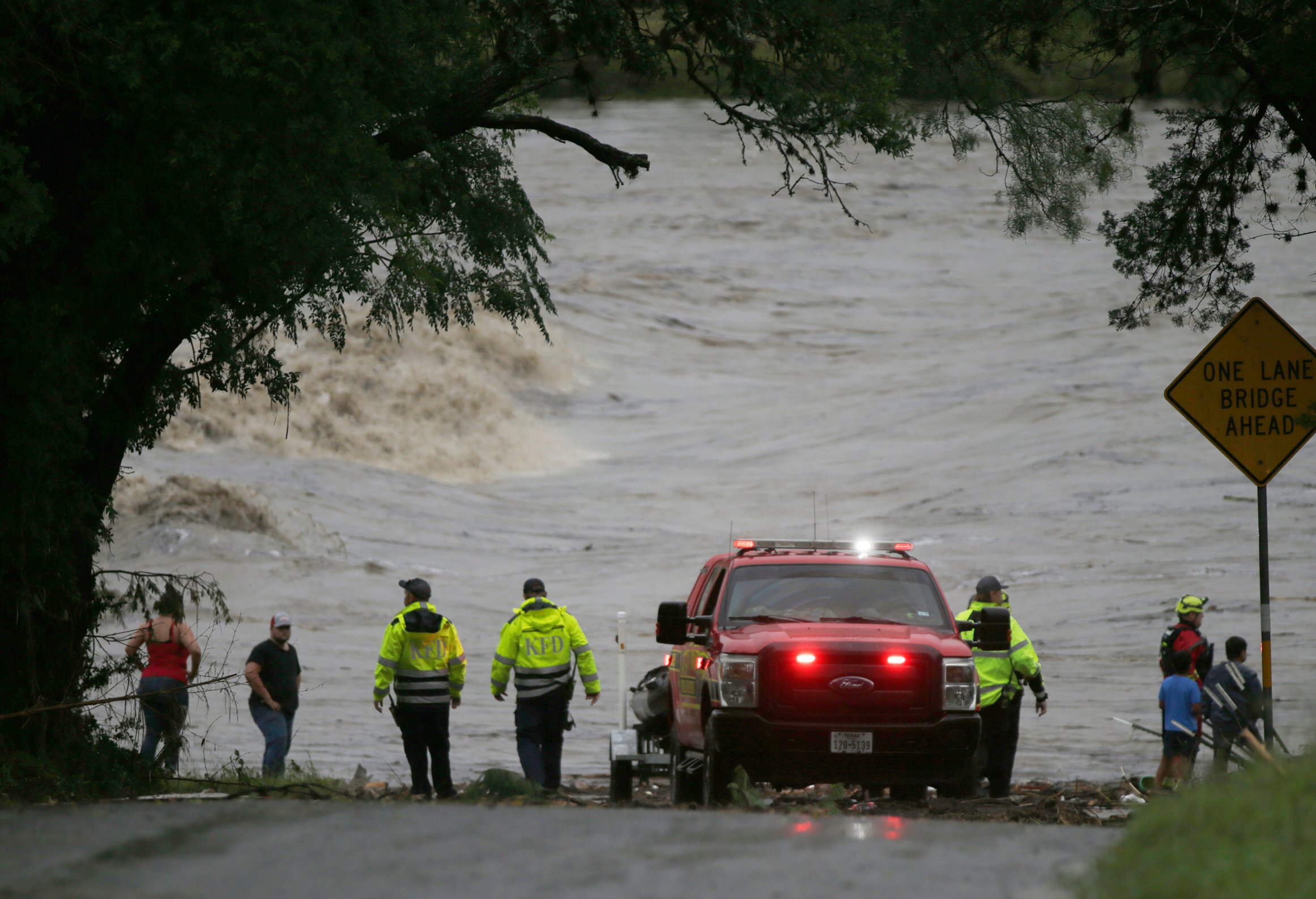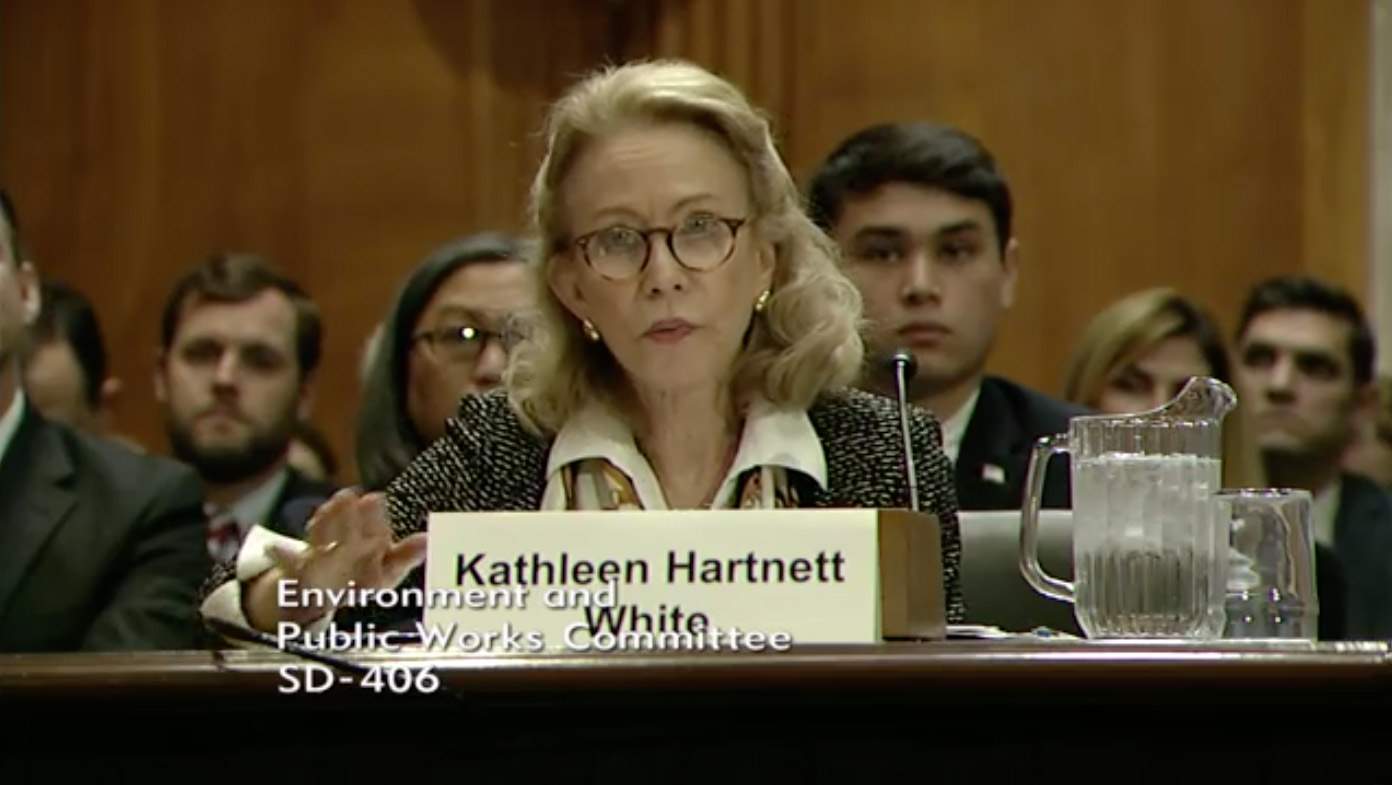
GOP Senator ‘Worries About Extremist Views’ of Kathleen Hartnett White at Confirmation Hearing
The move mirrors that of Rick Perry, who said humans were partially responsible for climate change at his hearing before reverting to denial after his confirmation.
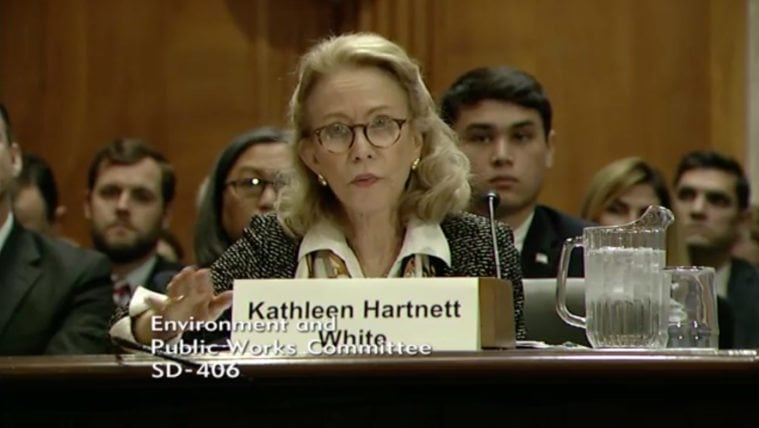
Kathleen Hartnett White, the Trump administration’s nominee to the White House Council on Environmental Quality, backtracked on her controversial position on biofuels when pressed by Republicans at a Senate confirmation hearing Wednesday. White, who has previously stated that ethanol policies are causing “massive distortions in the economy” and have “led to food riots in several countries,” said Wednesday she “erred” by not basing her previous position on current data and now “salutes the [ethanol] industry.”
White faces a challenging confirmation. Even one Republican defection could cost her the appointment and her position on the Renewable Fuel Standard could be key in winning their support. The standards, which requires that ethanol and other biofuels be blended into fuel supplies, have widespread bipartisan support from legislators from the Midwest, where growing corn, soybeans and other plants used to make biofuels is big business. Ironically, White’s opposition to the ethanol standards may be the sole point of agreement she has with environmentalists, who criticize the policy for producing monocrops, worsening soil erosion and having negligible benefits for climate change.
White isn’t the first Trump nominee from Texas to abruptly switch positions on a key issue during a confirmation hearing. Earlier this year at his Senate confirmation hearing for energy secretary, Rick Perry claimed the “climate is changing” and “some of it is caused by man-made activity.” But a few months later Perry danced his way back into the climate denial camp, saying that climate change “is not settled science” and that the administration should take a “red team/blue team” approach, suggesting that climate deniers and scientists bring equal value to the debate.
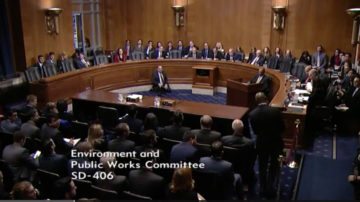
It appeared at the hearing that senators feared White may do the same on biofuels. Republican Senators Deb Fischer, of Nebraska, and Joni Ernst, of Iowa, repeatedly questioned White over her position on ethanol, asking whether she would commit to supporting the Renewable Fuel Standard, always rely on “accurate information” when advising the president on the issue and commit to not ending the Renewable Fuel Standard before 2022.
“I worry about your lack of understanding of the law, which is to provide access for renewable fuels and to promote agriculture and … rural America,” Fischer said. “I worry about your extremist views.”
On other environmental matters, White mostly stuck to views that have earned her both ridicule and harsh criticism from scientists and environmentalists. Democrats on the committee questioned White vigorously about her fringe viewpoints on smog, particulate matter, renewable energy and climate change. In the past, White has said that climate change is the “dogmatic claim of ideologues and clerics,” “fossil fuels dissolved the economic justification for slavery” and that renewables are “a false hope.” When questioned about her past statements, White deflected or defended her position, saying her earlier comments were being taken out of context.
“Your positions are so far out of the mainstream, they’re not just outliers they’re outrageous.”
When Senator Cory Booker, a New Jersey Democrat, pressed her on whether she believes there is a crisis in low-income communities due to high levels particulate matter, White said that because “the bulk of the country attains the national air quality standards for particulate matter …[it] is confusing if there is a crisis.” When asked about climate change, White said carbon dioxide has “none of the characteristics of a pollutant.” She also reiterated her belief that carbon is best understood as a “plant nutrient.”
At one point, Democratic Senator Jeff Merkley, of Oregon, held up a chart from a recent climate report published by the Trump administration finding that there is “no alternative explanation” for climate change other than humans. The chart showed the contribution of humans, solar flares and volcanic activity to climate change, and Merkley asked White whether she accepted the results.
https://twitter.com/AlexCKaufman/status/928304871266283522
The report, White said, is a “product of the past administration, not this one” and that “there’s incredible difference of opinion among climate scientists.”
“Your positions are so far out of the mainstream, they’re not just outliers they’re outrageous,” said Massachusetts Senator Ed Markey, a Democrat. “You have a fringe voice that denies science and economics and reality.”
White was also asked about her time as chair of the Texas Commission on Environmental Quality. Delaware Senator Tom Carper, the leading Democrat on the committee, homed in on a 2010 KHOU investigation that found that, under White’s leadership, the agency had purposefully underreported radiation levels in drinking water to downplay its danger.
White said the issue was “really technical” and that she would “never ever tell staff to underreport health hazards.”
But KHOU’s reporting found that White, with the green light from Perry, ordered staff to continue fixing the numbers. When asked why the agency didn’t challenge the EPA on strict radiation levels for drinking water instead of fudging the numbers, she told KHOU reporter Mark Greenblatt, “There are legal challenges, because of law not because of science, that are almost impossible to win.”

